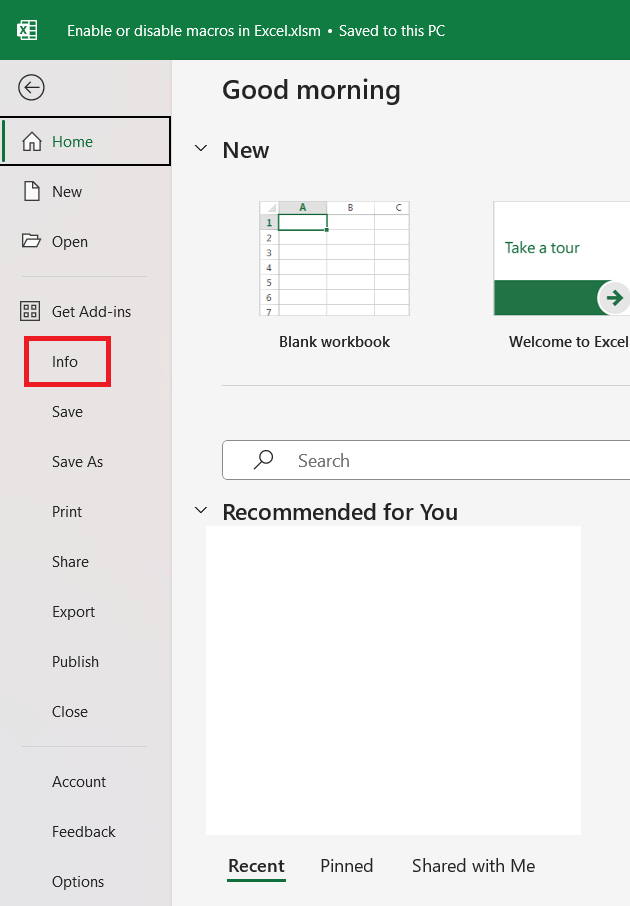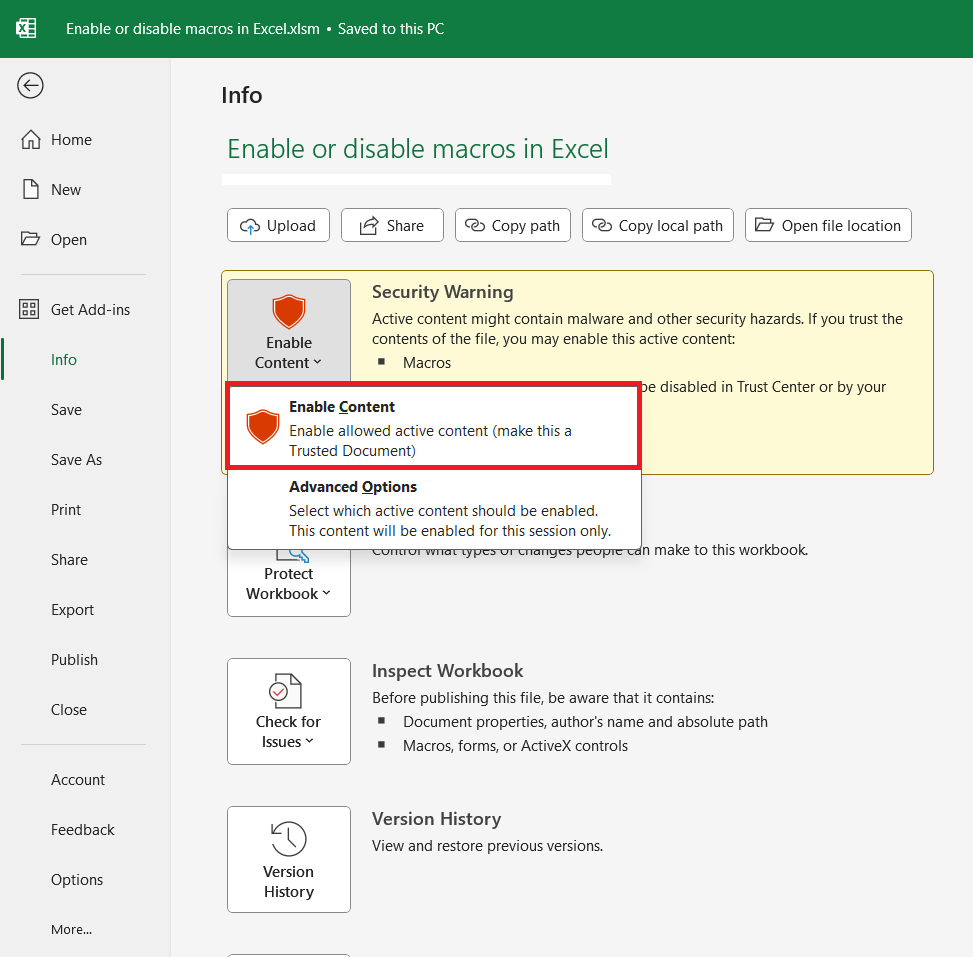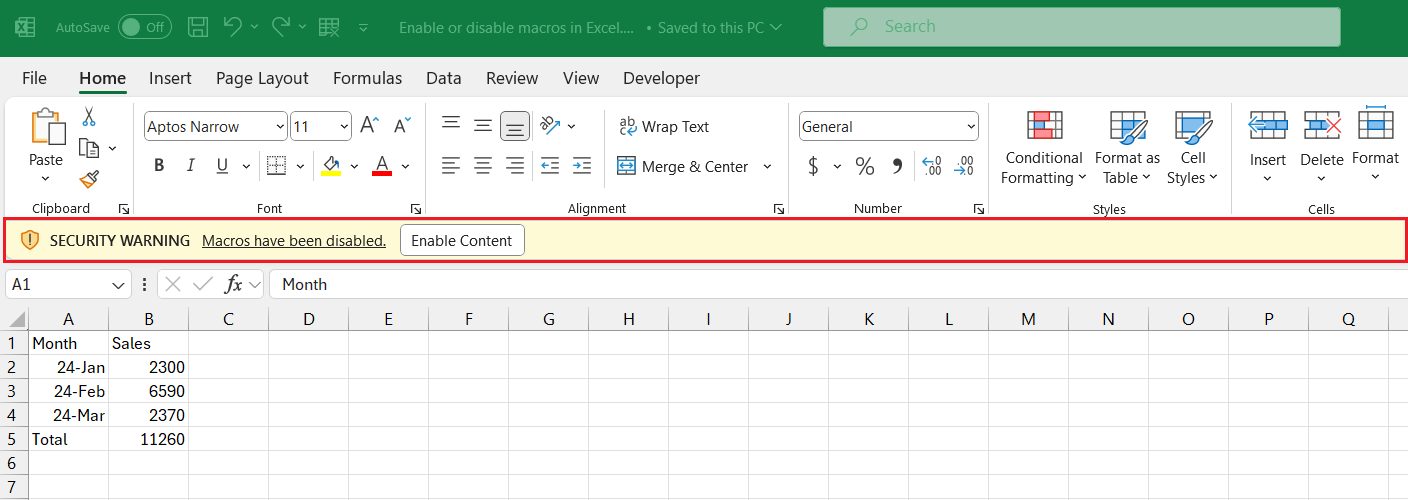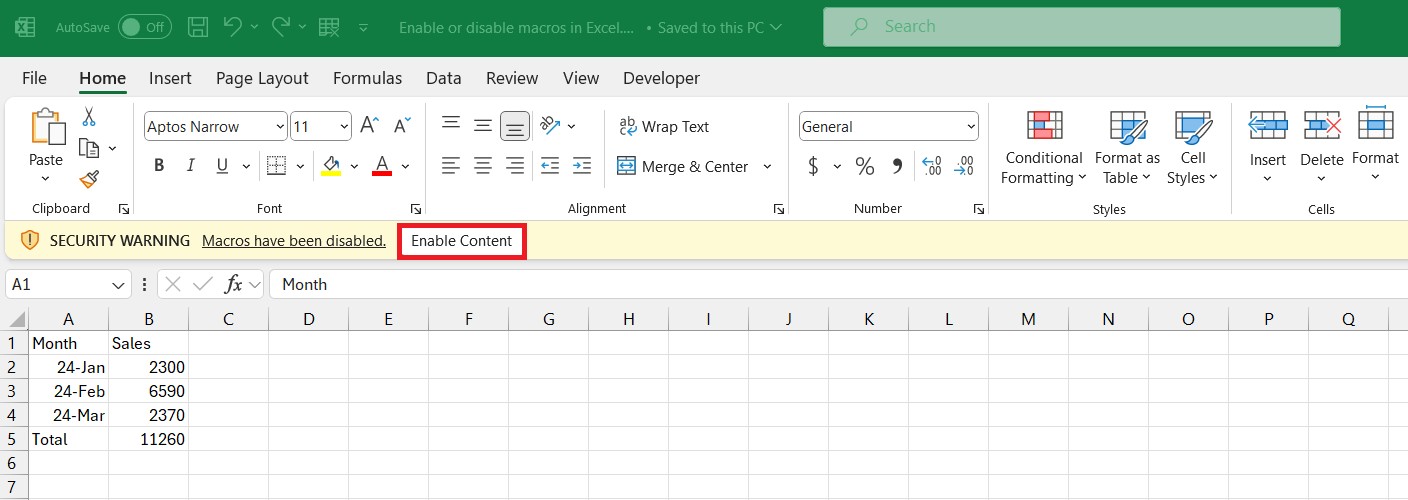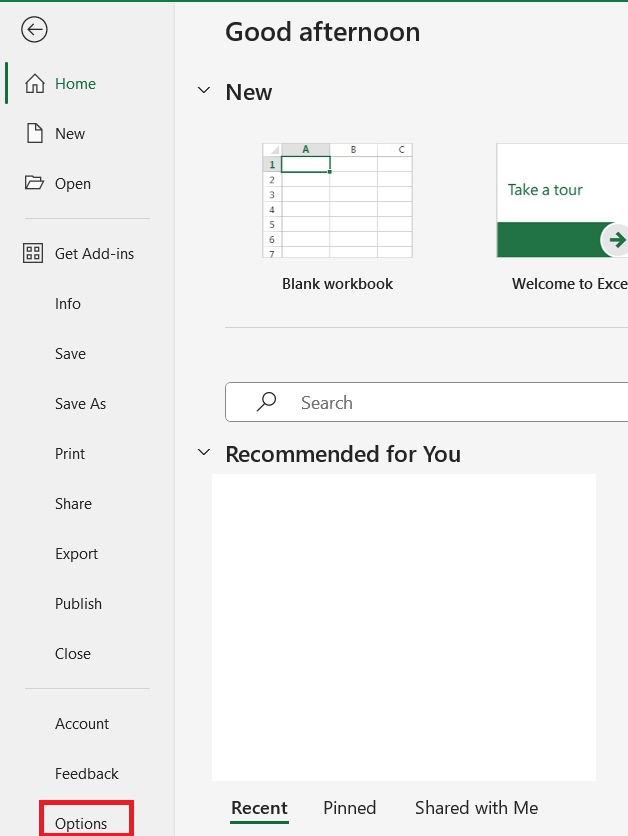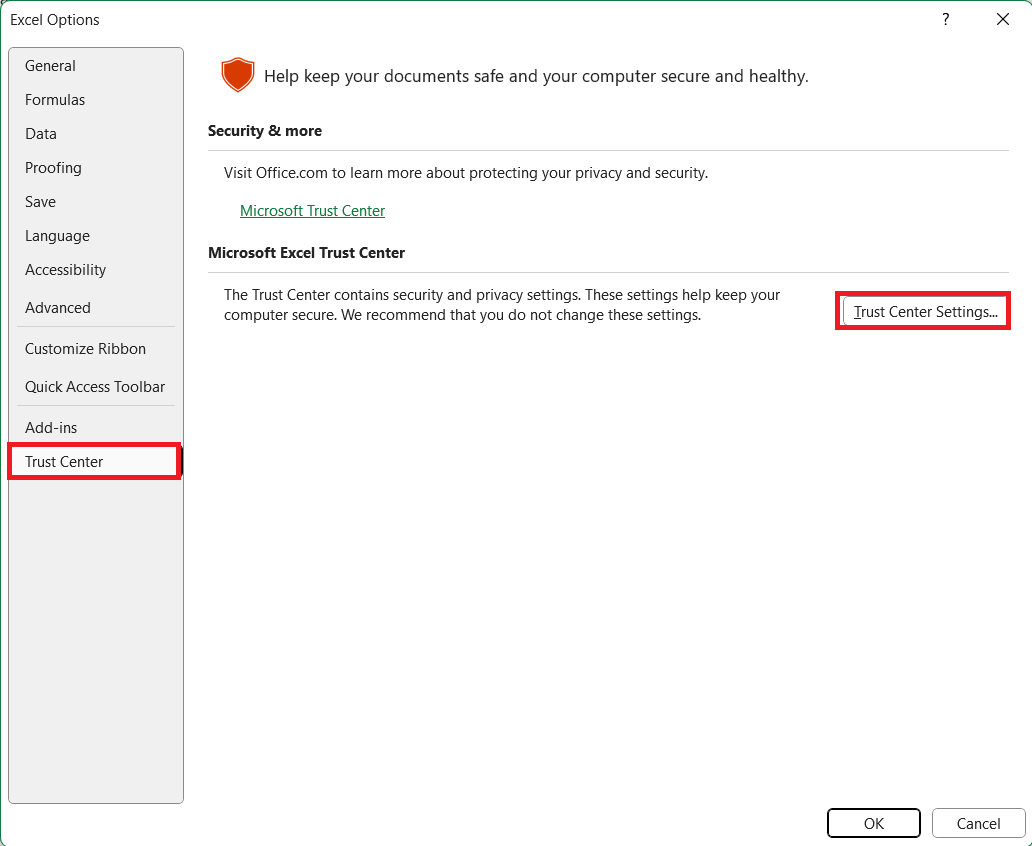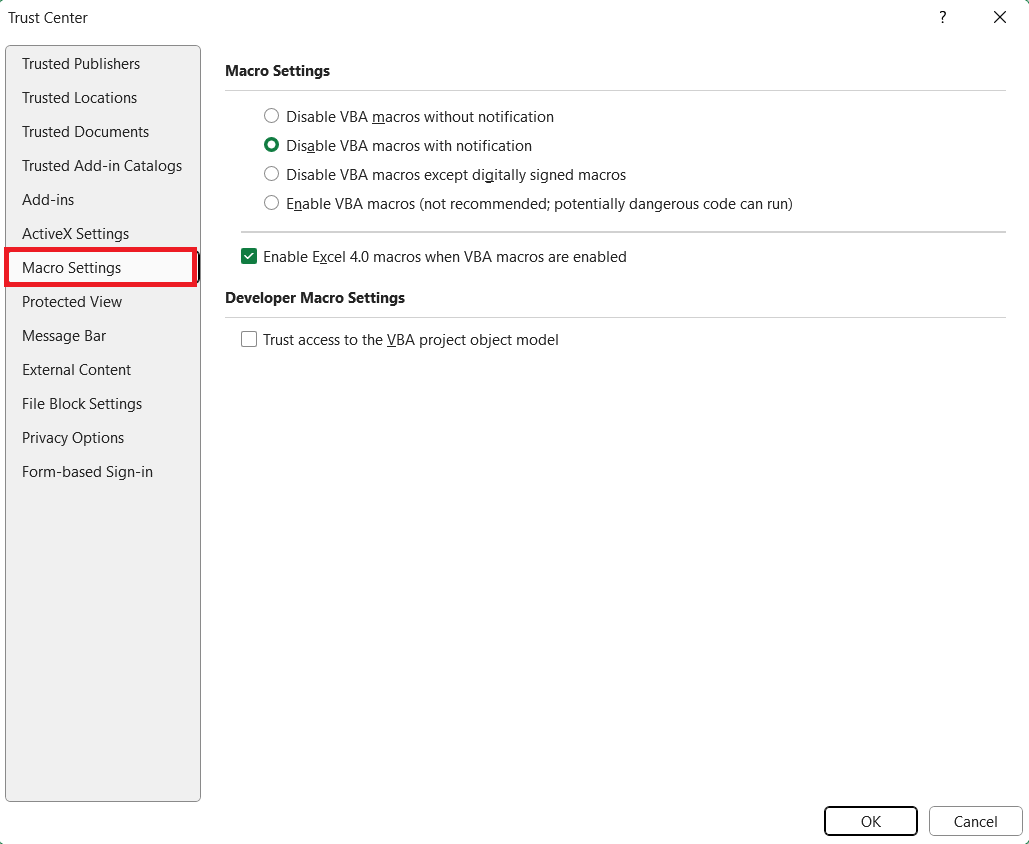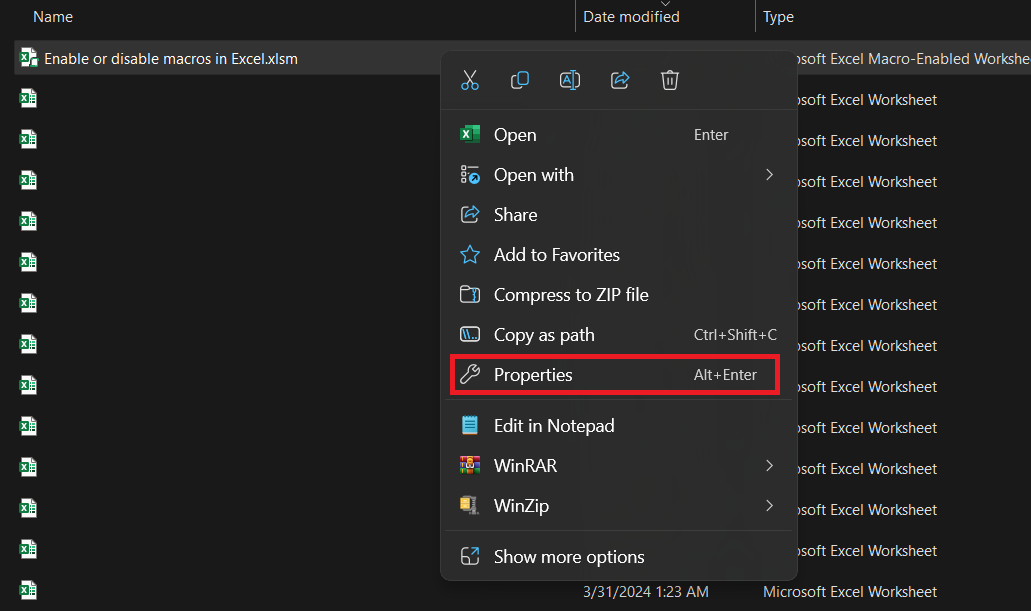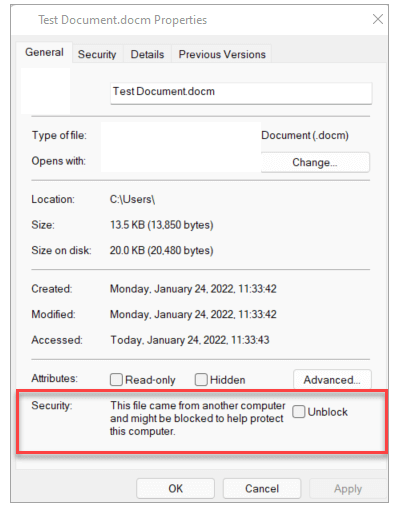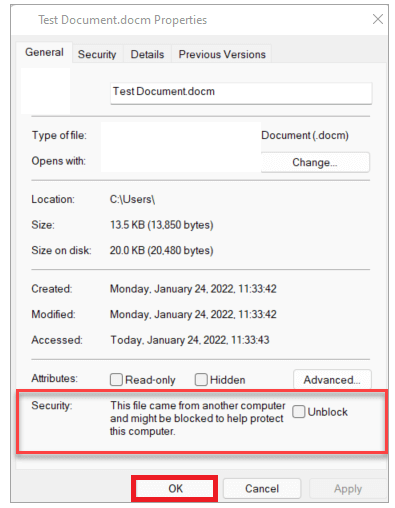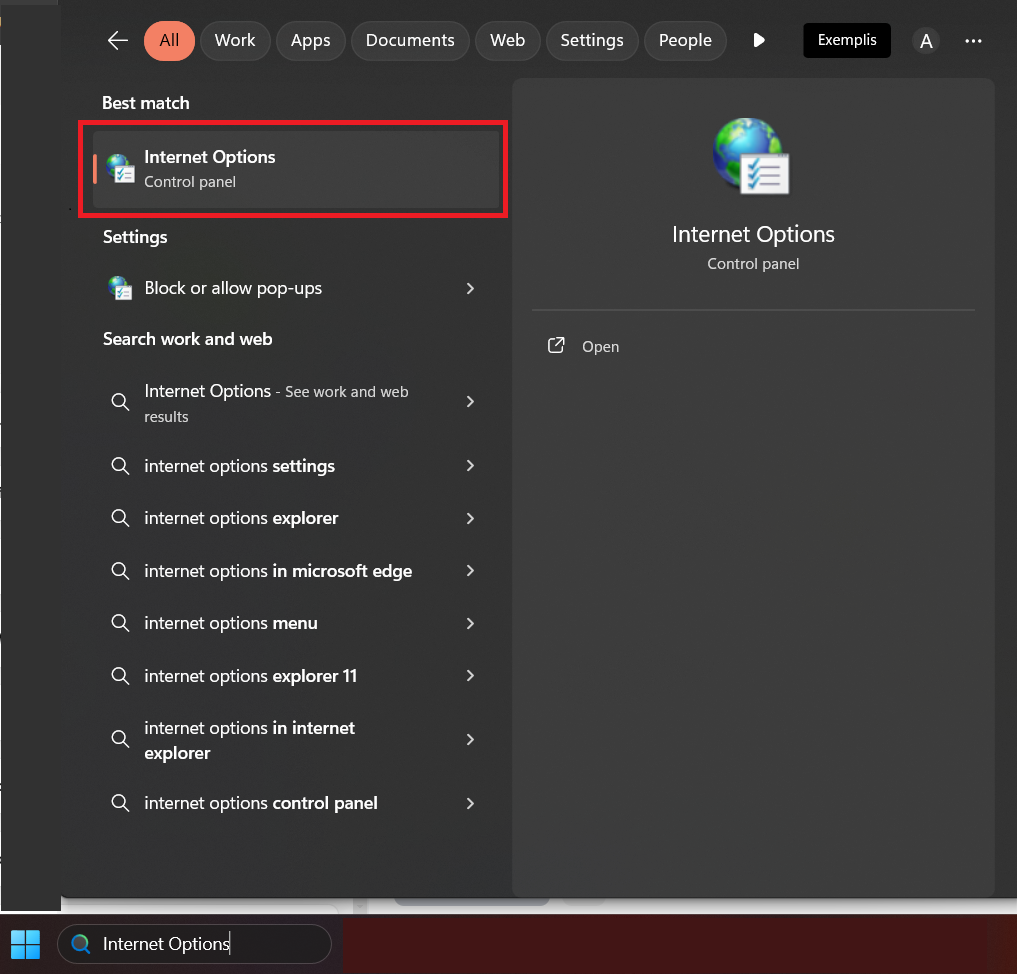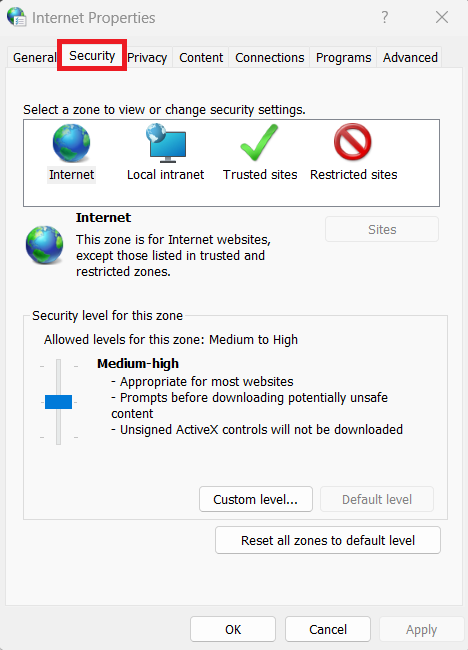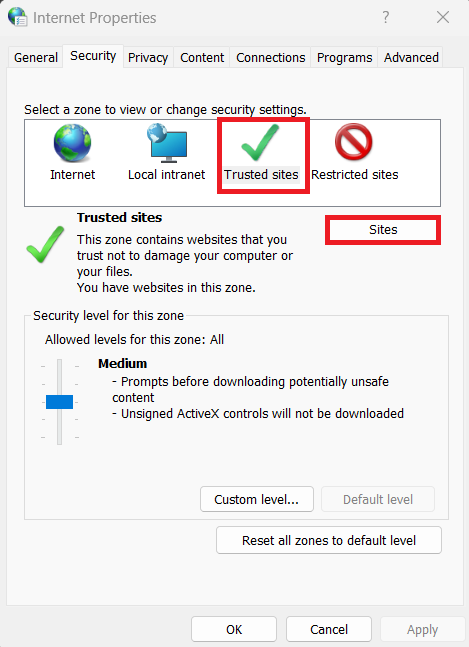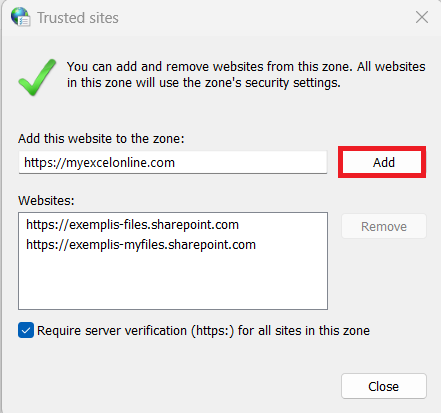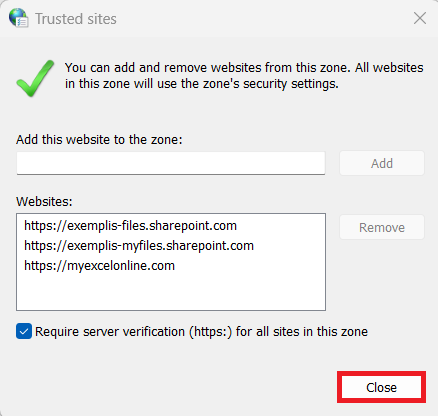Macros in Microsoft Excel streamline repetitive tasks, transforming them into simple, one-click actions that save time and enhance productivity. However, they come with security considerations; enabling macros from unknown sources could pose risks to your system’s security.
Key Takeaways:
- Automate and Save Time: Macros can automate repetitive tasks, significantly reducing the time spent on manual data entry or formatting in Excel.
- Security Risks: While useful, macros can introduce security risks. Malicious macros can compromise system security or steal sensitive data, prompting Excel to disable macros by default.
- Enabling Macros Safely: To safely enable macros, use Excel’s Backstage view or the security warning bar, ensuring macros are only enabled for trusted documents to minimize security risks.
- Managing Macro Security: Excel allows users to customize macro security settings, balancing between convenience and security. Disabling macros, except for those digitally signed by trusted publishers, is recommended for added protection.
- Awareness of Macro-Based Threats: Stay vigilant against phishing scams that utilize macros. Always verify the source of macro-enabled files and be cautious of unexpected emails or downloads that prompt you to enable macros.
Table of Contents
Introduction to Macros in Excel
Understanding the Power of Macros
Macros in Excel may seem daunting at first, but they’re powerful tools designed to automate repetitive tasks, making your spreadsheet work far more efficient. Think of them as a personal assistant within Excel, taking care of the mundane so you can focus on the analytical. For example, if you’re faced with the repetitive action of inserting multiple sheets, macros can do that with a single click!
The Security Implications of Enabling Macros
Enabling macros can be a double-edged sword. While they increase productivity by automating tasks, they can also introduce significant risks to your computer’s security. Some macros may contain malicious code, designed to compromise your system or steal sensitive data. That’s why Excel takes a cautious approach, disabling macros by default and notifying you before running them. To keep yourself secure, only enable macros from trusted sources and be mindful of the potential dangers of unidentified code.
How to Enable Macros Safely
Using the Backstage View for Macro Management
Navigating macro management is swift and user-friendly via the Office Backstage view. To enable macros for a specific workbook, just follow these simple steps:
STEP 1: Navigate to the ‘File’ tab to access the Backstage view. Then, choose ‘Info’ from the left-hand menu.
STEP 2: Look out for the ‘Security Warning’ area and click ‘Enable Content > Enable Content’.
By doing so, Excel marks your workbook as a trusted document, ensuring that the macros within can run without further prompts each time you open it. It’s like giving your workbook a VIP pass for macros, granting them hassle-free access.
Enabling Macros Through Security Warning Bars
To enable macros with a breeze when you open a macro-enabled workbook, Excel presents you with an accessible security warning bar. Here’s your step-by-step guide to using it:
STEP 1: When the yellow security warning bar appears right under the ribbon, take notice.
STEP 2: Choose ‘Enable Content’ if the workbook is from a trusted source.
By clicking ‘Enable Content’, you activate the workbook’s macros. It’s like flipping on a switch to let the automation magic flow through your data. But remember, only do this if you fully trust the file’s origin and content.
When re-opening the workbook, this process should not be needed again for trusted documents. If the warning persists, double-check your Trust Center settings.
Disabling Macros for Added Protection
Navigating Macro Security Settings
Customizing your macro security settings in Excel allows you to balance between protection and functionality. Let’s walk you through the control center:
STEP 1: Access the ‘Trust Center’ by clicking ‘File’ > ‘Options’.
STEP 2: In the Excel Options dialog box, select ‘Trust Center’ > ‘Trust Center Settings’.
STEP 3: Head to the ‘Macro Settings’ section.
Here’s where you select your preferred level of security:
- Disable all macros without notification: Choose this to block all macros, silent but ironclad.
- Disable all macros with notification: This option warns you about macros, but lets you decide their fate.
- Disable all macros except digitally signed macros: If you trust the signer, Excel trusts the macro.
- Enable all macros (not recommended): The open-door policy—not safe, but unrestricting.
Each setting has its use case and you’re free to experiment to find the balance that fits your workflow and security needs. Remember, macro settings are program-specific, so your Excel adjustments won’t affect other Office applications.
Temporarily Disabling Macros When Opening Files
For those times when you need extra caution, Excel lets you temporarily disable macros on a file-by-file basis even if you typically have macros enabled. Here’s how – When you open an Excel file with macros, the Security Warning bar appears. Instead of enabling content, simply proceed without taking action on the bar.
Disabling macros won’t affect the data in the workbook, but it prevents the execution of potentially harmful code. Essentially, you’re choosing a ‘look but don’t touch’ approach, giving you the chance to review the file’s contents first.
By being selective, you shield your computer while still maintaining the flexibility to enable macros if and when you deem it safe.
Consider adding a note here like: “Always ensure the source of your Excel files before enabling any content, especially if the document was unexpectedly received or downloaded.”
Unblocking Macros
If you have confidently verified the safety of the file and wish to enable macros, various methods are available to accomplish this, with the specific approach varying based on your current circumstances.
Unblock a single file
Sometimes, you may run into a specific Excel file with macros that you trust, but find it’s being blocked. To unblock it:
STEP 1: Close the Excel workbook if it’s open. Navigate to the workbook’s location using File Explorer. Right-click the file and choose ‘Properties’.
STEP 2: In the General tab, find and check the ‘Unblock’ checkbox.
STEP 3: Press ‘OK’ to apply changes and open the workbook again.
By unblocking the file, you allow Excel to run its macros without altering your global settings, keeping a strong security posture while retaining the functionality you need.
Unblock all files from a website
If you frequently download Excel files with macros from a website you trust, you can streamline your process by treating the whole site as safe. However, keep in mind this is risky and should only be done for websites you’re certain won’t expose you to harmful files.
To unblock all Excel files from a specific website:
STEP 1: Open the Internet Properties dialog via the Control Panel or by typing ‘Internet Options’ in Windows Search and hitting Enter.
STEP 2: Navigate to the ‘Security’ tab.
STEP 3: Select the web content zone that you want to manage (e.g., Trusted sites) and click ‘Sites’.
STEP 4: Add the website URL that you trust and click ‘Add’.
STEP 5: Click ‘Close’.
Now, files downloaded from the added website will have a lower security setting applied, enabling macros without the ‘Unblock’ step for each file. However, remain vigilant; only do this for sites with impeccable security standards.
Recognizing and Avoiding Macro-Based Phishing Scams
In the digital age, a key threat is hidden in emails and downloads through macros, used by phishers mimicking reliable sources to spread malware. This guide underlines the dangers of macro-enabled files and offers tips to detect and evade phishing schemes. Identifying dubious files from any source is vital for protecting your data.
Did you expect a file containing macros?
It’s crucial not to open unexpected attachments, even from familiar sources. Phishing attempts often mimic trusted contacts or organizations to entice you into opening them.
Is someone unfamiliar urging you to activate content?
Attackers frequently concoct scenarios, like order cancellations or the necessity to review legal documents, to trick you into downloading and enabling macros in documents. Remember, no genuine business will require you to open an Excel document to cancel an order, nor do you need to enable macros just to view a Word document.
Are pop-up messages prompting you to activate content?
Downloading files from websites might trigger pop-ups or other notifications pushing you to enable active content. Such prompts are typical strategies used by attackers, signaling that the file might be harmful.
FAQs
How Do I Permanently Enable or Disable Macros in Excel?
To permanently enable or disable macros in Excel:
- Go to ‘File’ > ‘Options’.
- Select ‘Trust Center’ followed by ‘Trust Center Settings’.
- Select ‘Macro Settings’ and choose your desired option.
- Click ‘OK’ to apply your settings.
This process allows for persistent macro settings, tailored to your security preferences and workflow requirements.
Is It Safe to Enable Macros in Excel Spreadsheets?
Enabling macros in Excel is safe when the file comes from a trusted source and you’re certain of its contents. Always exercise caution and ensure that you’re aware of the purpose and origin of the macro before proceeding to enable it. If in doubt, it’s better to keep them disabled.
Can I Enable Macros for Just One Session in Excel?
Yes, you can enable macros for just one session in Excel. When opening the file, in the ‘Security Warning’ bar, select ‘Enable Content,’ then ‘Advanced Options,’ and choose ‘Enable content for this session’. This allows you to run the macros once without changing your permanent security settings.
What happens if I disable macros in Excel?
If you disable macros in Excel, any automated tasks or scripts designed to run within your workbook won’t execute. This ensures your system’s security against potential macro-enabled threats but may impact the workbook’s intended functionality if those macros are legitimate and necessary.
What is the difference between enable and disable macros?
Enabling macros in Excel allows automated code to run, which can streamline complex tasks. Disabling them prevents any macro code from executing, protecting against potential security threats but also possibly limiting the functionality of the spreadsheet if it relies on those macros.
John Michaloudis is a former accountant and finance analyst at General Electric, a Microsoft MVP since 2020, an Amazon #1 bestselling author of 4 Microsoft Excel books and teacher of Microsoft Excel & Office over at his flagship Academy Online Course.
